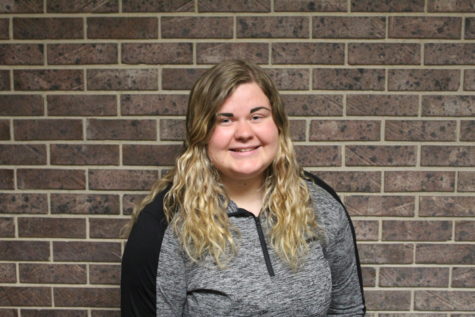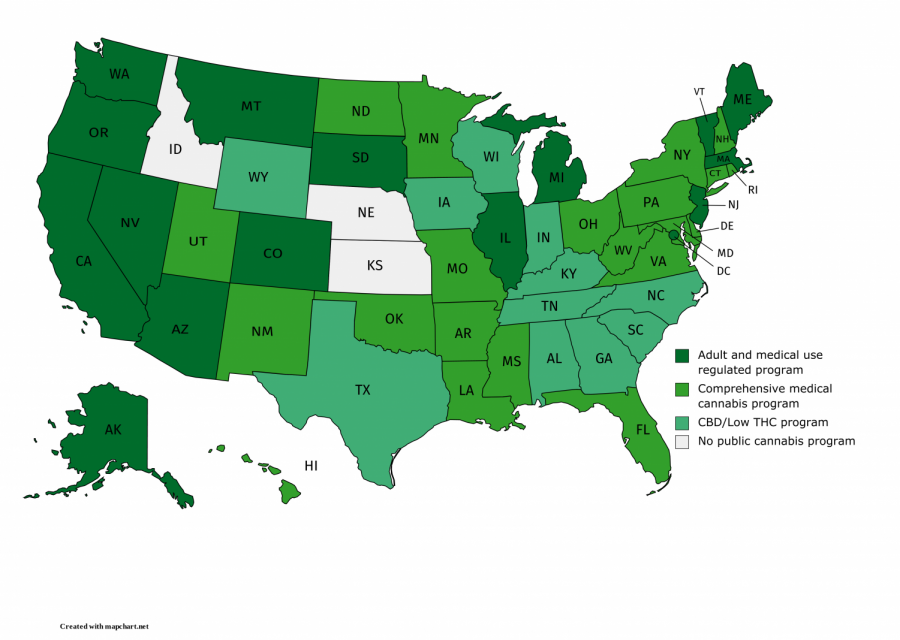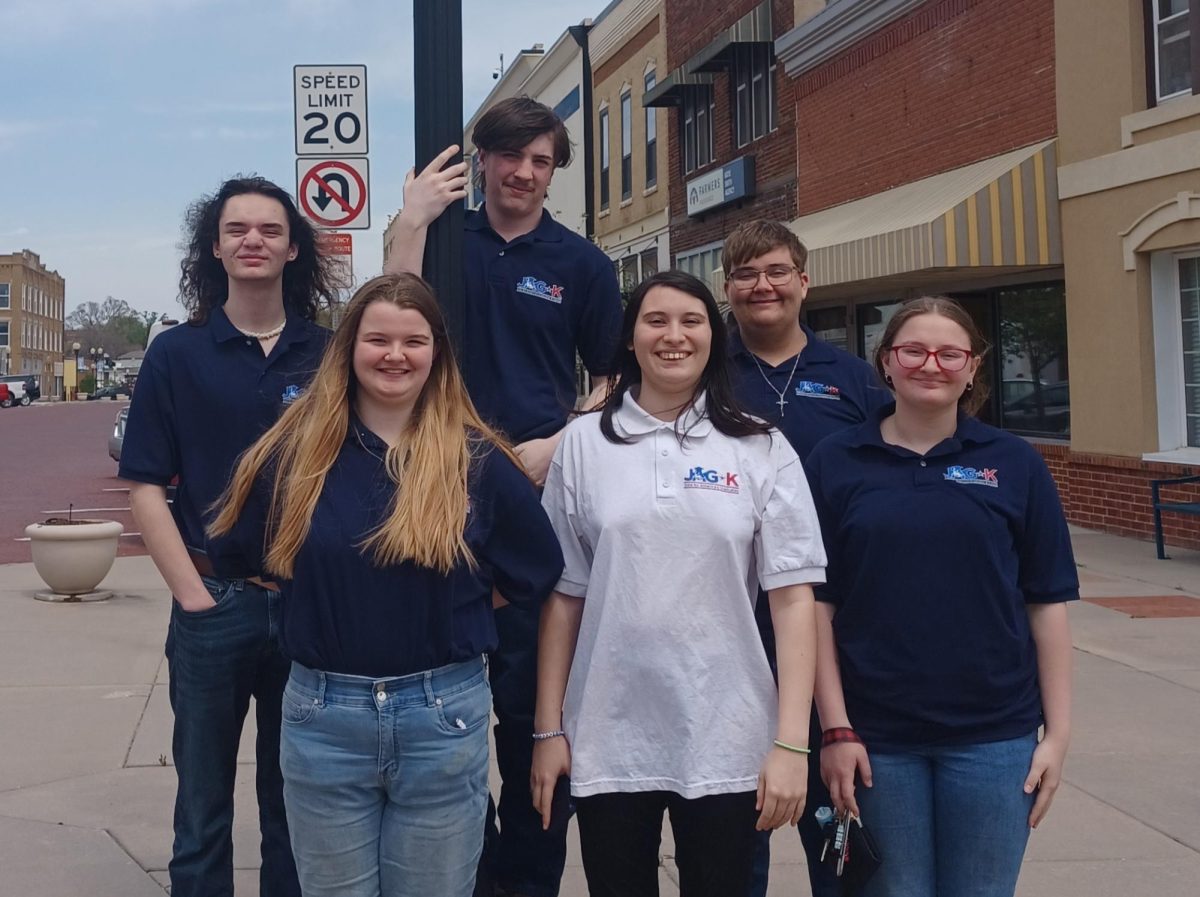At a press conference, Governor Laura Kelly spoke about how she wants to legalize and tax medical marijuana to fund Kancare, which she stated would offer lower costs of health care to more than 165,000 Kansans in need. Kansas is one of the three states that has not legalized the use of medical marijuana or any other form of cannabis products.
Augusta Mayor Mike Rawlings does not agree with legalizing marijuana usage.
“Based on my Christian belief and the research I have done, there’s not enough research to justify it being used for medical purposes,” Rawlings said. “Also in what I researched, it says that it stunts mental growth in the late teen years, impairs judgment and motor skills. Personally, I have witnessed this in acquaintances of mine over the years.”
According to WebMD, legal marijuana is used for cancer, appetite loss, mental health conditions, muscle spasms and more. The cannabinoids (active chemicals in medical marijuana) are similar to chemicals the body makes, which helps soothe pain in the body. Even with some pros, Rawlings sees multiple cons of legal marijuana.
“I think that this is a gateway to more illegal selling of the drug,” Rawlings said. “There is so much danger that this drug can cause, leading to lung and cardiovascular damage, depression, anxiety and can lead to more stoned drivers on the roads. We don’t have enough law enforcement personnel and any tax revenues raised from selling it would fall short in paying for more law enforcement.”
In order for Kelly’s plan to pass, the law would have to be written and passed at the state level and then adopted at the local level. Rawlings believes because of the conservative makeup of the state legislature, the law will not be passed. Health teacher Cynthia Phillips agrees with Rawlings.
“Although I am good with the thought of medical marijuana to help those with pain, I don’t believe it would be passed,” Phillips said.
Phillips believes that if the law were to pass in Kansas, illegal selling to underage children and teens would spike above current rates. According to NCDAS (National Center for Drug Abuse Statistics), 86 percent of teens know someone who smokes, drinks or uses drugs during the school day. Also, more than 50 percent of teens have misused a drug at least once in their lifetime.
“It’s scary when you think about it because there is a good chance that you don’t realize what is going on behind closed doors,” Phillips said. “Teenagers have so much more to worry about nowadays and drug usage can ruin many opportunities for them. If medical marijuana passed, there would still be an age limit on it, but you can’t tell who would sell it to teens.”
Marijuana can be very dangerous when moderation is not practiced with the drug. Phillips feels as though there are no certain pros to marijuana, but there are some cons such as unemployment because of a failed drug test. With the cons of marijuana, science teacher Nathan Stevens feels that Kansas should wait to legalize the use.
“Considering the issues that other states have had/are having due to their legalization of the substance, I think it would be best to take our time (as a state) and study closely the long-term effects (both physiologically on the body and economically on the state) of that decision rather than quickly pushing for it just because other states have already done it,” Stevens said.
Stevens is not against the use of medical marijuana in all cases; however, since it is a more political decision, he does not think that Kansas would react any different than other states that have legalized usage. Nonetheless, he feels that illegal buyings will continue to be an issue.
“If there is a way to make money off of anything, people will find a way to try it, especially for those that cannot get a prescription but feel they still need it for whatever condition they are treating,” Stevens said.
With little research on the effects of marijuana, overuse of the drug is an unknown danger.
“The biggest drawback to marijuana use is two-fold,” Stevens said. “First, there just isn’t enough evidence from long-term studies to justify the use of prescription marijuana as a ‘blanket’ treatment solution for most conditions. Secondly, every person’s individual body chemistry is unique and there will likely be unforeseen side-effects for some patients – just watch a ‘new drug’ commercial for the disclaimers and list of its side-effects.”
With the new plan Kelly is trying to form, Stevens is unsure of how the plan would stay alive in Kansas.
“As far as the governor’s plan to move ahead with the legalization process, I’ve not read enough on the topic to really know the specifics of that plan,” Stevens said. “But, since this is a very political decision and many areas of Kansas are still considered to be fairly conservative, I would guess that it might meet with significant push-back in the legislative process. Regardless of legal weeds intended use, the state will need to consider not only increasing patrols on the road but making sure officers are provided with the training and testing kits necessary to uphold any laws that may change due to this decision.”
Categories:
Kansas looks at possibility of legalizing medical marijuana
About the Contributor

Savannah McMichael, Co-Editor
Senior Savannah McMichael is a third year reporter and first year Co-Editor on The Oriole staff. McMichael is a very enthusiastic person who tries to make the best out of every moment. She enjoys country and christian music and loves going to concerts. In her free time, she can be found riding on dirt roads in her truck, riding four wheelers, blaring music and reading. McMichael plans to go to Missouri Southern State University to pursue a degree in dental hygiene soon after graduating.








